Having just worked together on recording a new violin concerto, the composer and soloist sit down to discuss the challenges and rewards of the process
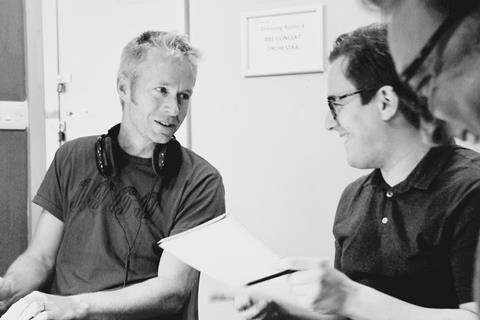
Stuart Hancock interviews Jack Liebeck
Stuart Hancock: When you’re tackling well-trodden repertoire, how much do you listen to (and are influenced by) other violinists’ recordings? Is it a challenge to find new ways to interpret old works?
Jack Liebeck: I tend not to listen to other people’s recordings. I like to see what the music says to me and take it from there. If I need to listen to a recording in order to know what is going on in a piece then I will listen to a recording that I know that I will hate, in order that my ears will not be influenced too much by what I hear!
I’m a bit weird like that. But I am sure that the ‘greats’ of the past didn’t check each other out on recordings to steal ideas. I of course do listen to other players on record, but not of pieces that I’m working on. Sometimes, with hindsight, it can be interesting to listen to something that I’ve been working on after my work has been done, just to see how different their ideas were. The ‘imperfections’, similarities and differences are what makes the playing individual.
On the other hand – you often work with living composers, as you have (brilliantly!) with me and my concerto, and you’ve had many pieces and solos in film scores written for you. Do you feel it’s a pressured or stressful situation for you to work closely with a living composer, or do you thrive on it?
I love working with the living! It is always refreshing to me how ‘non-stiffs’ that I work with are willing to be flexible when something is interpreted ever so slightly differently than they first imagined it; there is a real dialogue there. This reminds me that some of the inflexibility that is beaten into us (metaphorically) as students – ‘You can’t play Mozart like that!’ – is probably not at all how the composer would have felt had they been listening to our playing.
Also, I particularly enjoyed how, during your recording sessions, you stood next to me when we recorded the second movement. You were very moved it seems (as was I, it’s utterly gorgeous!), that was a very special experience to share.
- Watch: Jack Liebeck recording Stuart Hancock’s Violin Concerto (excerpt)
One of my favourite string concertos is the Walton Viola Concerto. Do you play and perform on the viola too? If not, ever considered it?
I would love to play the viola, I’d have to work on reading the clef faster, but one day… At the moment I am pretty busy on the violin!
When you meet people for the first time (non-musical ones, outside of your work) and you tell them you’re a violinist, are there typical initial questions you get asked about your work? [reason for asking is when I’m in that situation, I can pretty much guarantee what the first question’s going to be, and usually the second and third too]
‘Oh, do you play in an orchestra?’, ‘What songs do you play’, ‘Give us a tune’, ‘Is that a machine gun in your case’, ‘My grandma found a Stradivari in her loft’, ‘It’s so lovely that you can make a living from something that you love’, ‘What do you do for a day job?’, ‘My sister’s daughter is looking for a violin teacher, how much do you charge? (GULP)’, ‘Are you as good as Vanessa Mae and/or Nigel Kennedy’, ‘Can you play at my wedding?’…
Partners and lurchers – we both have them. Given your hectic schedule and commitments and all your travel, is it a challenge to get the work/life balance right?

As a musician, the work/life balance is always a challenge. The constant travel, unsocial hours, eating at weird times, can take its toll on the mind and body. Plus, we are what we do, a bad day in the ‘office’ is something very personal. I have managed to work it out over the years, I’m a pretty laid back person which helps.
I have my wife Laura, lurcher Mollie and teaching position in the Royal Academy in London so I have a strong anchor, I have to return as much as possible so that my home life can take place. Some musicians are happiest on tour, some are happiest at home, I’m the latter.
Other than performing my violin concerto at Cadogan Hall in February 2020 (and hopefully taking it on elsewhere after that!), what exciting gigs do you have lined up, and what career ambitions do you hope to fulfil in the near future?
On the release day of your album I’ll be in Australia with the Melbourne Symphony Orchestra, Prof Brian Cox and Daniel Harding giving the world premiere of a new violin concerto by Paul Dean, dedicated to Stephen Hawking.
2020 will also be my 40th year, with concerts in King’s Place and Wigmore Hall and around Europe. I have another recording coming out in March 2020 (Brahms/Schoenberg concertos with BBC Symphony and Andrew Gourlay).
Career ambitions are to keep on going and growing!
Jack Liebeck interviews Stuart Hancock
Jack Liebeck: When writing for a particular instrument, how do you know the intricacies of how to write for them without being able to play them yourself? Do you go on crash courses?!
Stuart Hancock: I feel I’ve got a good understanding of the workings of most of the traditional orchestral instruments – having plenty of experience playing in orchestras myself – and I do like to get hold of scores to see what good orchestration looks like notated.
When it came to writing a meaty violin part for the Violin Concerto, I wasn’t completely in at the deep end, as I do play the viola after a fashion… [cue viola jokes…] It meant I had a decent understanding of most of the extended techniques of the violin and could pretty confidently write stuff like double-stopping and harmonics and know what articulations would work well set against an orchestral accompaniment.
When Paul [Barrett, the concerto’s dedicatee] was trying out my first sketches, he tended to grumble a bit about phrases that used the interval of a perfect fifth as well as double-stopping in fifths. Fifths, I thought, should be the easiest of double-stops (just one finger across two strings, right?!) Nothing of the sort. So I did a bit of re-writing in order to avoid a lot of those fifths, favouring fourths and sixths instead.
And Paul was a big fan of left-hand pizzicato; he suggested I do a variation of the theme of the finale of the concerto that featured the technique in a suitably flashy way. This he certainly did give me a crash course on. It amazed me what was possible (even if fiendishly hard to pull off!)
Do you ever have writer’s block, if so how do you deal with it?
I tend to have mild writer’s block when trying to start a piece of concert music and will end up staring at a blank sheet of manuscript paper for too long. Once you do get the first kernel of an idea going, then the creatively tends to flow okay – and that idea quite often happens randomly (eg in the shower, walking the dog etc). I guess you just have to trust it’ll come.
With commercial music, there is no room for writer’s block: the deadlines can be stupidly tight, like having a day or a half-day to compose, arrange, record and mix a fully-produced 30- or 60-second demo, so you just have to knuckle down and do it! In many ways it’s not so daunting a task as concert music though, as you tend to be writing to accompany the visual footage of a commercial, or at least an animatic (a crudely animated storyboard), so you have starting points and temp tracks to get you going.
Or the client will have an existing song they wanted to use – but can’t afford to license – so you need to compose something reminiscent of that song (always a dangerous brief to receive!)
What music makes you angry? Something that you truly despise…? (mine is the music of Piazzolla)
I’m not a fan of minimalist music, I have to admit. And music that goes on too long and doesn’t know when to stop. And that ubiquitous melancholy piano-and-strings stuff that certain composers churn out and sell millions of albums with.
But what really irritates me – and this is a beef with film/TV music – is when you’re watching a show and there’s TOO MUCH MUSIC! It’s a product of film-makers making the assumption that a viewer’s attention span is goldfish-like, therefore the solution is to plaster their the show wall-to-wall with over-the-top music (whether bespoke scoring or drawn from library music albums).
It’s especially the case with reality TV shows and, increasingly, nature documentaries too. Film-makers need to trust in the quality of their product and not revert to relying on music to up the ante all the time: music loses its effectiveness when it’s there the whole time. It’s powerful to have NO music too!
What is the most annoying question that people ask you when you tell them what you do?
There are questions that are a bit predictable! When I say that I’m a composer for film and TV, I can almost guarantee the first question is ‘Ah, cool – so what have you done that I might have heard?’ Which is a fair enough question, of course, but whilst building up my career, it was a question that bugged me because I didn’t have any particularly juicy credits I could name!
I do now have a handful of things people have seen or at least heard of (like Atlantis and We’re Going On A Bear Hunt, and people still remember London’s Burning, the final series of which I scored back in the early noughties).
Usually the second question is ‘So what instruments do you play?’ and then it’s often ‘So do you watch the film before you write music for it?’ – which strikes me as a very odd one, as you’d think it’d be obvious that a composer watches the film first (and then over and over and over as they compose the music to it).
The movie or TV episode or ad is always shot and edited first, and then the composer comes on board to do their thing, usually at the tail-end of the production schedule (and the budget!). Film/TV scoring is very much a supporting role, albeit a really crucial one – and unless you’re being asked to write music-led sequences in films (like dances or montages), then yes, the music will always happen in response to the footage and not the other way round.
Which living composers do you most admire?
There are many outrageously brilliant film composers out there. John Powell is a particular favourite – his credits include the Bourne, Shrek and How to Train Your Dragon franchises, and he’s a viola player too, so can’t be all bad! Also Michael Giacchino, James Newton Howard and Harry Gregson-Williams to name but a few. They’re all (as I aspire to be) natural successors to the absolute legends of modern film scoring like John Williams, Jerry Goldsmith and Alan Silvestri, who really set the benchmark of film music for me as a kid in the 80s with their scores to the likes of Star Wars, Star Trek, Back to the Future, Indiana Jones etc etc.
Williams and Silvestri are still going strong, of course, with the latest Star Wars and Avengers scores – and John Williams’ concert music is fabulous too: it felt like a real privilege that my Violin Concerto was first performed with the Southbank Sinfonia in a programme that included Williams’ stunning Bassoon Concerto The Five Sacred Trees. This and his other concerti are worth checking out if you don’t know them.
Do you get obsessed with musical ideas, like ear worms?
Yes – it’s inescapable! Oh, the sleepless nights I have with tunes running round and round in my head… This week, with the jobs I’ve been either composing or arranging on, it has been a combination of Bibbidi Bobbidi Boo (from Disney’s Cinderella), plus a little-known Liza Minelli Christmas song, and the tunes of a couple of songs I’ve been writing as a pitch for a children’s musical film.
When it’s my own tunes that I can’t get away from, I have to look on that as a positive, as it means they must be catchy and will hopefully lodge themselves in my clients’ heads too – and during the process of us doing the Raptures recordings, Lev [Parikian, conductor] referred to me as an ‘ear-worm-monger’ (which I take as a compliment!). To get ear-worms out of my own head at the end of the day, I need to get better at not working right up until going to bed – I need to have the discipline to get up and start earlier in order to finish earlier and be able to unwind and de-tune my brain.
Working in the genre of film and tv as well as concert music, with film and tv directors/producers, how do you feel when non-musicians take your music apart or try to change it?
That’s just the way it is, and I’ve developed a thick enough skin to deal with it over the years and not get too precious or possessive over what I’m writing. You’re creating a product that a client is looking to buy, and they have to be happy. And if, ultimately, it gets rejected, you have to take it on the chin and wait for the opportunity to revisit and rework that composition for something new.
Being philosophical about it, everyone’s a musician in the sense that everyone has an emotional response to music, regardless of whether they have years of training or not – and that opinion is as valid as the next person’s. If it’s not right, it’s not right!
What annoys me and amuses me (in about equal measure) is deciphering feedback from a non-musically trained client, especially when they try and identify instruments or try and use musical terminology. The concepts of tempo and pace often get confused (ie the difference between perceiving something as going at a higher tempo, when you are perhaps simply throwing in semiquavers rather than quavers and haven’t actually changed the tempo at all). And the most over-abused term by a long way is crescendo.
For example (paraphrasing real feedback from a film director) “Errr yes, it’s at that point where the crescendo should happen, and then I want you to be really crescendo-ing across that section, and then you reach the crescendo.” It took me a little while to work out that crescendo was being used to mean (a) a sforzando stab of music, (b) getting louder (ie correct musical usage) and (c) climax… all in the same sentence…!
Does your Lurcher like listening to your compositions?
Sid the lurcher is pretty indifferent to it all, I’m afraid. As long as he gets his food, his walks and a comfy dog-bed to laze in all day, he doesn’t seem to mind what I churn out!
Stuart Hancock’s album ‘Raptures’, including the Violin Concerto performed by Jack Liebeck, featuring the BBC Concert Orchestra conducted by Lev Parikian, will be released on 15 November 2019 on Orchid Classics

![[2] Echo Theory pc Lukas Breuer - Copy](https://dnan0fzjxntrj.cloudfront.net/Pictures/274x183/2/5/7/38257_2echotheorypclukasbreuercopy_270148.jpg)
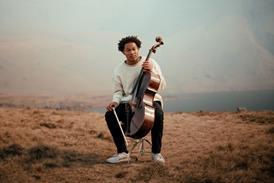
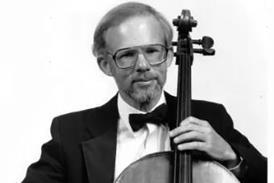



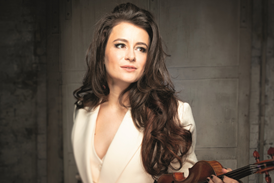

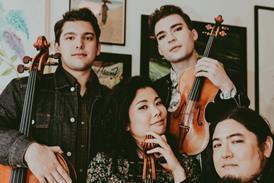

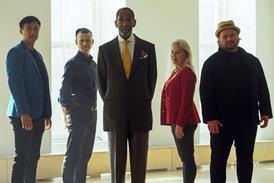
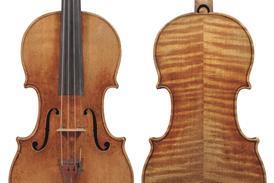
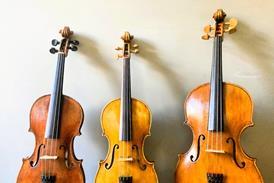
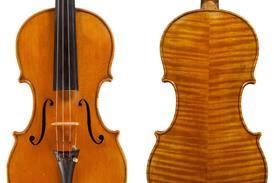
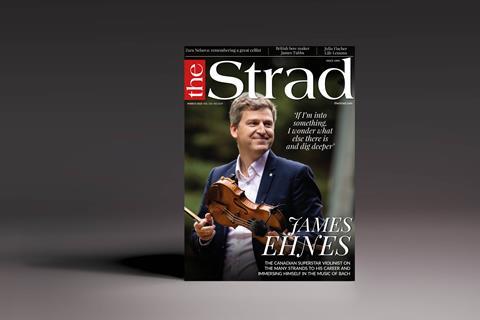




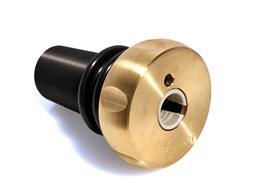


































No comments yet